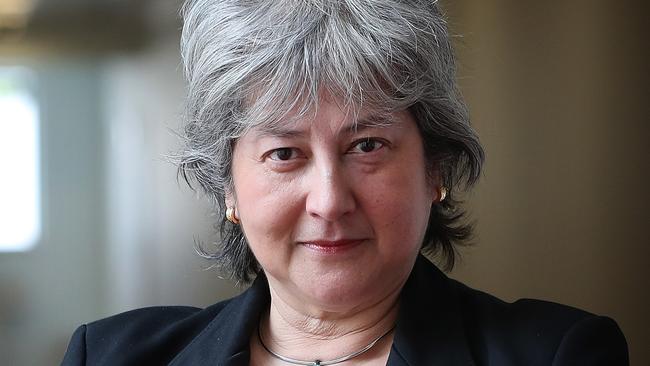UK pledges to stand up against China coercion
Britain will work with like-minded countries to counter Chinese coercion against Australia and other Indo-Pacific nations.

Britain will work with like-minded countries to counter Chinese coercion against Australia and other Indo-Pacific nations under Boris Johnson’s new strategic “tilt” towards the region.
The strategy identifies China as a “systemic competitor”, warning that its militarisation and growing assertiveness in the Indo-Pacific present “the biggest state-based threat to the UK’s economic security”.
Britain’s top diplomat in Australia, Vicki Treadell, said the policy recognised the “coercive actions of China” in the region, and “the weaponisation of trade policy as we have seen perpetrated on Australia”.
“It comes back to our assessment that we are seeing a rise in authoritarian countries, autocratic rule (and) an element of instability,” she said. “We do not think that Australia has been treated well. We are very clear that Australia is an important partner, a like-minded partner; we share the same values and those are the values we wish to uphold.”
Australian ships will join an allied task group led by aircraft carrier HMS Queen Elizabeth on a voyage into the Indo-Pacific later this year as it demonstrates UK commitment to the region.
Vessels from the carrier group are due to stop in Malaysia to mark the 50th anniversary of the Five Power Defence Arrangements between Australia, Malaysia, New Zealand, Singapore, and the UK. It is unclear whether a port visit is planned for Australia.
Ms Treadell said the UK would work with Quadrilateral Security Dialogue nations — Australia, the US, India and Japan — and had applied for ASEAN dialogue partner status.
She said “burden-sharing” by liberal democracies would enable them to better tackle global challenges.
Her comments followed those of US President Joe Biden’s Indo-Pacific co-ordinator Kurt Campbell, who said the US had confronted China over its economic coercion of Australia. He said the US was “not going to leave Australia alone on the field”.
“We have made clear that the US is not prepared to improve relations in a bilateral and separate context at the same time that a close and dear ally is being subjected to a form of economic coercion,” Dr Campbell told The Sydney Morning Herald.
“President (Joe) Biden was very direct with Prime Minister Morrison that we stood together on this.”
China hit back, blaming Australia for the deteriorating relationship, with a foreign ministry spokesman saying Beijing was not responsible.
“The root cause of the current difficulties in bilateral relations is Australia’s wrong words and deeds on issues concerning China’s sovereignty, security and development interests,” Zhao Lijian said at a press conference.
“The Australian side knows the ins and outs better than anyone else.”
The Integrated Review, released by Mr Johnson on Tuesday is a post-Brexit repositioning of British foreign policy, recognising that the UK’s economic future depends on the dynamic Indo-Pacific region.
Additional reporting: Adeshola Ore




To join the conversation, please log in. Don't have an account? Register
Join the conversation, you are commenting as Logout